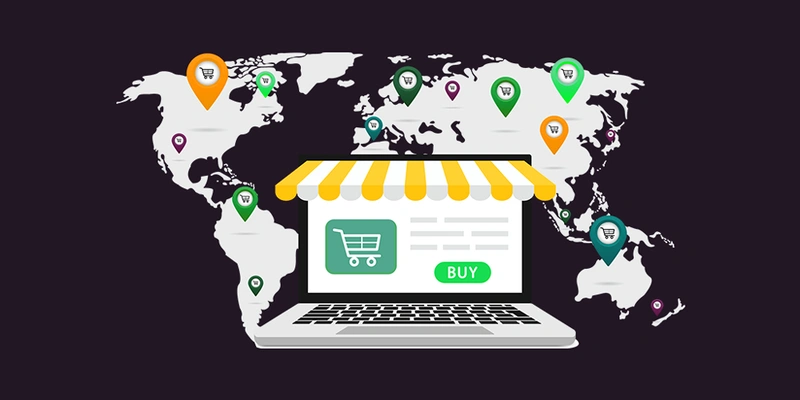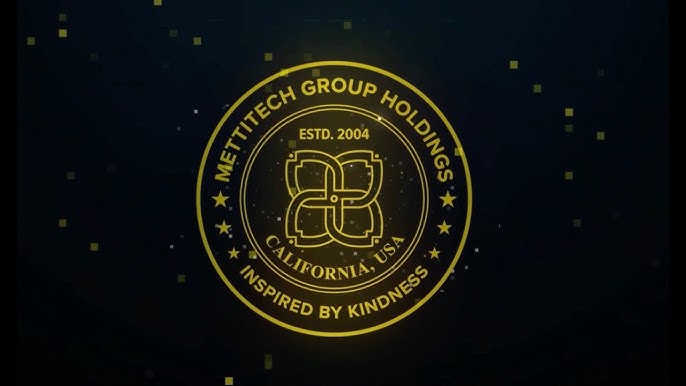Cross-border E-commerce has become an irreversible trend in this rapidly evolving digital age, providing Vietnamese firms with significant chances to access international markets. It’s a test of how well businesses can apply technology, manage operations, and adjust to global growth strategies, but it goes beyond simply increasing revenue.
1. What Is Cross-Border E-Commerce?
Cross-border e-commerce refers to the buying and selling of goods or services online between individuals or businesses in different countries. A consumer in one nation can buy from a website or e-commerce platform in another and have the item delivered locally.
For instance, Shopee Global allows small sellers to reach Japanese consumers, while Amazon allows Vietnamese coffee brands to sell specialized beans to the United States.
2. Why Is Cross-Border E-Commerce Becoming The Norm?

a. A Wide-Open Global Market
According to eMarketer, global e-commerce sales are expected to exceed $6 trillion by 2025, with cross-border transactions making up over 20% of that total. This is a lucrative opportunity Vietnamese businesses should not miss.
b. Lower Costs, Higher Efficiency
E-commerce enables companies to communicate directly with end users, eliminates middlemen, and lowers operating expenses when compared to traditional export methods. Numerous startups have demonstrated that, with the correct approach and a laptop, they can “go global.”
c. Global Consumers Love Vietnamese Products
Vietnamese commodities, particularly food, handicrafts, herbal products, and agricultural products, are becoming more and more well-liked because of their natural origins, excellent quality, and reasonable prices.
3. Key Challenges Vietnamese Businesses Must Overcome

Many Vietnamese companies still encounter obstacles when trying to expand internationally through e-commerce, despite the enormous potential:
- Outdated tech platforms: Many don’t have integrated systems for order management, payments, or cross-border logistics, and their websites don’t adhere to international standards.
- Limited legal knowledge & export standards: Labeling, packaging, and certification standards vary by market (e.g., FDA in the U.S., CE in Europe).
- Logistics and order fulfillment struggles: International shipping, return, and customer complaint handling calls for a professional system.
- Underdeveloped global marketing: Strong SEO, advertising, and multichannel operations on sites like Amazon, eBay, and Etsy are lacking in many businesses.
4. Digital Technology: A Powerful Boost For Going Global

To break through, Vietnamese businesses need to fully embrace digital tools:
- Build omnichannel management systems: Sync data, inventory, and orders across websites, marketplaces, and social platforms.
- Use blockchain for product traceability: Boost transparency and meet increasing consumer and regulatory expectations.
- Integrate AI into marketing: Personalize shopping experiences and fine-tune ads for each market.
- Connect with global logistics providers via API: Automate pricing, shipping, and tracking for international deliveries.
5. What’s The Right Path For Vietnamese Businesses?

a. Start With Strong Local Products
Choose “Made in Vietnam” products with high potential that are already popular in the country, such as coffee, spices, dried foods, handicrafts, and natural cosmetics.
b. Build A Professional Digital Presence
You can’t have a local mindset and sell worldwide. Your website needs to be easy to use, bilingual, and have explicit return, shipping, and payment policies. Additionally, list products on international platforms.
c. Standardize Legal Compliance & Certifications
International standards for food safety, labeling, trademarks, and intellectual property must be understood and adhered to. For instance, food exports to the US need to be labeled in English and FDA-registered.
d. Optimize Global Marketing
Invest on country-specific Google and Meta advertisements, multilingual content marketing, and foreign SEO. Above all, collaborate with a group or partner who is familiar with local customer behavior.
6. Mettitech – Your Trusted Tech Partner For Going Global

MettiTech is proud to be a pioneer in helping Vietnamese businesses apply digital solutions to reach international markets. We provide a complete cross-border e-commerce solution with expertise in several fields:
- Digital platform consulting & cybersecurity: We design optimized e-commerce systems, integrate digital certificates, and protect user identity.
- Global legal registration services: From U.S. FDA and European CE to brand protection and quality assurance.
- Worldwide logistics integration: Through our extensive partner network across the U.S., China, and the EU.
- International marketing & multilingual SEO: Ensuring your products reach the right customers, at the right time, in the right markets.
Conclusion
For Vietnamese companies hoping to prosper in the current global economy, cross-border e-commerce is now a strategic need rather than an option. Serious investments in technology, compliance, and global company strategy are necessary for this trip.
MettiTech is here to assist you navigate the digital world in a sensible, safe, and sustainable way if you’re searching for a trustworthy companion to accompany you on this international adventure.
CONTACT
